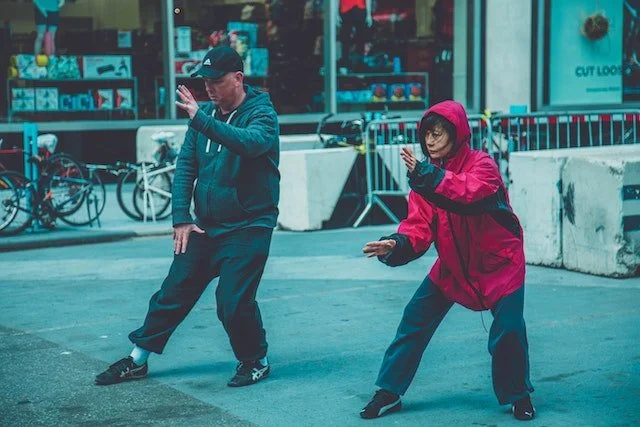Nick Farrell recently posted an intriguing article about why magical rituals fail. He'd decided to play devil's advocate and post on Facebook about a magical failure he'd recently had occur and he wanted some input, but he also wanted to explore how people justify failure in magic. He wasn't the only one to weigh in on this topic, but I'll cover what other people said further below. For the moment I want to address what Nick had to say about the topic.
Nick noted that people offered him a few suggestions for why the ritual didn't work. The suggestion I offered was one that involved technical issues: or as Nick put it: "Your ritual was badly written or performed incorrectly". The next explanation was that God (deity of your choice) or your true will or your higher self or the universe forbid it to work. The final explanation was that you blocked yourself on a subconscious level from attaining your goal. Nick noted that this explanation had some validity, but argued that if someone else did the ritual for you, then the ritual should've been successful.
Nick went on to argue that perhaps the reason the working failed is because some possibilities are easier to manifest than others are (I agree with him) and that what might be needed is that you do the ritual multiple times to prime the pump. If it doesn't work the first time, add some more power into the mix (again I agree with him on this point, and have approached magic that way myself on occasion). However while I do agree with his reasoning for why magic fails, I think it's worth exploring in more detail some of the issues he mentioned above.

Like Nick I agree that attributing the failure of magic to a higher being, the universe, your highest self, or your true will is dodging the issue. It's a rather fatalistic perspective that simultaneously allows a magician to avoid taking responsibility or look too closely at the magical process. It's not my responsibility if it doesn't work, so I'll just foist it off on some higher power or my true will or the universe. If such a power is really against you, then perhaps its time to look into why that is the case and take appropriate actions to deal with the situation, instead of allowing it to persist.
I do think your subconscious can work against you, and I'd argue that if you genuinely believe you don't deserve something no amount of enchanting by yourself, or others, or even some higher power will change the fact that some part of you is actively working against what you think you want. Nick argues that other magicians should be able to enchant successfully for something that he wants, but just because they don't have those issues, doesn't mean that his subconscious won't work against the result.
And while Nick argues that the point of magic is supposed to help you overcome these kinds of problems, I think one of the reasons magic fails is because the magician hasn't done the necessary internal work with his/her subconscious to know what s/he truly wants. Why else do people raise their hands and admit that they'll get a result, but then have it only be short term before they are dealing with a similar issue or before it goes away?

The truth is that an unexamined desire is one that is rife for sabotage. The point of overcoming problems is that first you deal with the internal beliefs around the problem and then you do magic because your house is in order. If you don't do that, it doesn't matter if you call on an angel, demon or god, because even if they are trying to help you, you are working against yourself, and that block is powerful enough because it expresses the fundamental connection of your identity and its relationship to the world. Until you change the internal, the external will reflect exactly what you fundamentally believe you deserve. Dean Williams offers an excellent example of why others working magic for you will still fail, and aptly notes that you have to want something more than you fear having it. I personally prefer to work with the fear, and turn it into a resource that actually helps you get what you want, but the point is you need to be in alignment with what you want before you get it.
As an aside, Donald Michael Kraig argues that assigning blame is counter-productive to magical effectiveness. I agree with his points, especially where he notes that taking a positive approach and examining what could be done differently is more useful than assigning fault, but I also think it worthwhile to examine what someone did or didn't do...not to blame, but to understand how what was done didn't work. I mention this here, because if we examine subconscious blocks, what we often find is that they are messages others or we ourselves have assigned. So we need to understand how fault, in and of itself can play a role in why magic isn't working.
There is the first reason that Nick discussed about why a magic working failed: The ritual was poorly written and/or improperly performed. I've always taken a process approach to magic. A process approach examines a given magical act and allows you to analyze why it did or didn't work. By examining magic as a process you explore what exactly is or isn't working. You can even determine if your understanding about a principle of magic was faulty and also determine how to modify the working to make it more successful. The process of magic course that I designed was put together because I recognized that too many magicians don't really understand how magic works. They do it and if it doesn't work they can't explain why it didn't work or modify the working to resolve the issue that caused the magic to not work. It doesn't help that there is one school of thought that argues that you don't need to know how magic works and yet conversely argues that you should be able to share your experiments with other people...how can you share your experiments, your process if you don't know HOW magic works?
The point of exploring the technical issues is that you really do examine all the components of your magical working/ritual and you then determine what was missing from the equation. Maybe it was your subconscious working against you, or maybe you didn't adequately understand how a given technique of magic works, or perhaps you didn't draw on the right resources or maybe you didn't specify when or how the magic should manifest or maybe you need to put more oomph into the magic and do the ritual several times over to build up the necessary momentum to tip matters into your favor. And finally you may not have taken the appropriate mundane actions to help the magic along. Magic doesn't operate in a void and taking action needs to occur on the mundane level as well as the magical level. It creates the path of least resistance. By asking these questions and looking at the answers you can determine why magic has failed and more importantly determine what actions need to be taken.
A real world example: I recently created a wealth entity to help me improve my skills as a sales person and help me to find the right clients. That entity can only help me if I take action. If I stay in my office and just wait for a phone call, the chances of getting a phone call will be very low. However if I go out and do cold calling and network and offer specials on my services, I am creating a path of least resistance for the entity to do its work. I have done all those actions (and more) and in the last three weeks I've either set appointments with promising prospects or had meetings with them and I am in the process of converting them from prospects to clients. My entity and magic in general can only do so much, unless I am willing to also do my part. A solid understanding of the magical process helps you understand why your ritual has failed and more importantly allows you to discover what you need to do to make the magic work. Without that understanding you'll sometimes have success, but you'll also have failures and you'll be left wondering why, without being able to take effective action. Knowing the technical aspects of magic provides you the foundation to work truly effective magic on a consistent basis.











